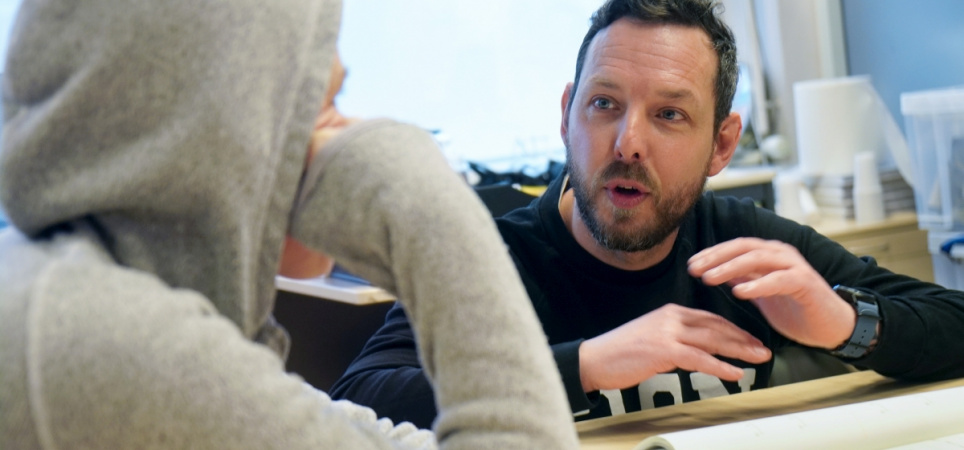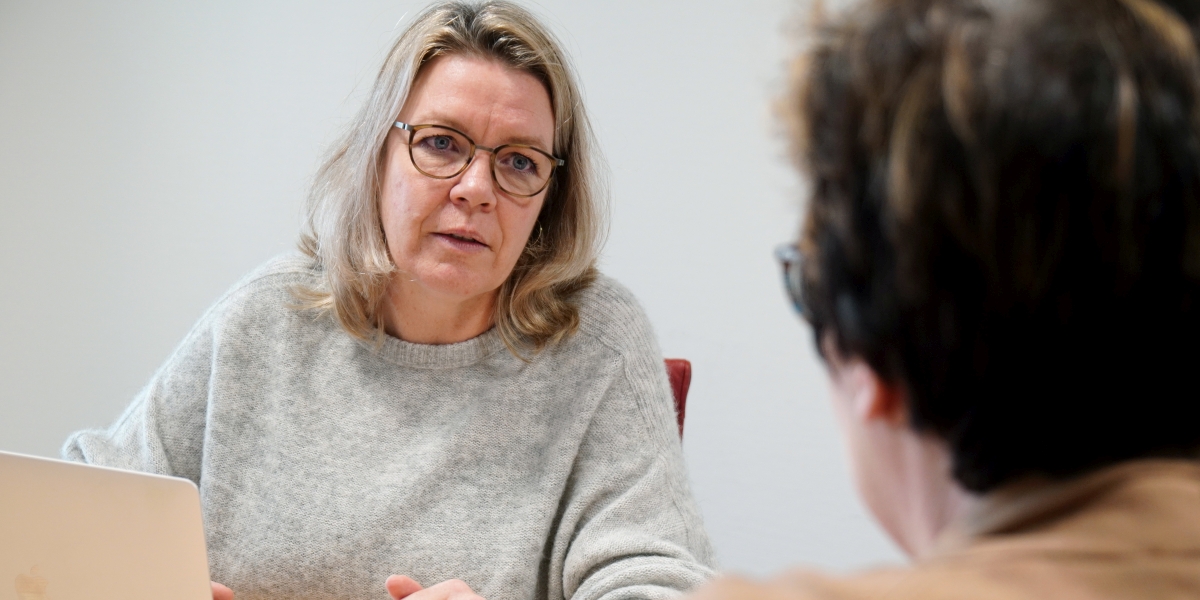Salary bonus at disadvantaged schools divides teachers
At the end of this summer, outgoing minister Arie Slob decided to give teaching staff at disadvantaged schools an average of 8 percent more salary for two years. “Discrimination”, says one. “Recognition at last,” says the other.

Image: Rob Niemantsverdriet
Sjoerd Nicodem still has a stomachache from the previous labor market allowance, that's the official name of this type of arrangement. In the autumn of 2020, education minister Arie Slob made a structural release of 16,5 million euros so that the salaries of VSO teachers would come closer to that of colleagues in regular secondary education. After a lot of haggling, Nicodem and his colleagues at the Schreuder College practical school in Rotterdam were not eligible. “Because practical education did not officially train for further education or a diploma.” Four months later, Slob recognized the practical education diploma. “But yes, that arrangement had already been implemented by then.”
And now there is the temporary bonus that the minister pays from NPO funds. Intended for teaching staff, including support staff and principals, in schools with the most challenging student populations. That is about 15 percent of all primary and secondary education establishments, about thirteen hundred schools, the ministry calculates. The underlying idea is that these schools have more corona backlogs to eliminate and at the same time suffer from a more acute staff shortage.
This time Nicodem will most likely receive an extra salary for two years. He sees it as a make-up for the first time “where Slob has screwed us an ear”. At the same time, he is fundamentally against “the umpteenth artifice of Slob”.
discriminatory
Nicodem finds the scheme discriminatory. In special education, the money goes to schools with the most 'cumi students'. In practice, in contrast to regular education, where more factors are now taken into account, these are students with a non-Western migration background. Nicodem: “While these students certainly do not always require the most care.”
Via a tool You can find the schools that receive the extra euros from the Ministry of Education. Nicodem: “Suppose you don't feel like working at a school for special education with many immigrant children. Then you check the brin numbers to find out where you don't want to apply."
He noticed last year that a bonus for some of the staff causes mutual hassle. Another Schreuder College location offers pre-vocational education as well as pre-vocational education. Teachers who teach pre-vocational secondary education there eventually received the allowance, but their colleagues from practical education did not. Nicodem: “There you are, together in the canteen. That doesn't really help your work ethic.”
Absurd what the minister is doing, there is no long-term vision behind it
Education administrators also think that the allowance creates a divide, the Education magazine reported earlier in a news item. Some of them choose to divide the extra money among all their staff. Such as Maarten van Kesteren, director of four special education locations in Delft and Westland, two of which are officially eligible for the bonus. Van Kesteren: “When I first heard about this grant, I said to my team leaders: this is a bomb under my organization. It is absurd what the minister is doing, there is no long-term vision behind it.”
School board Proloog from Friesland has six schools that fall under the 15 percent of Slob. Driver Arjette de Pree told Omrop Fryslân that she is not feeling well. 'I would prefer not to make a proposal because I think it is an unfair measure. We are not going to refuse the money, because I am glad that the minister thinks that teachers deserve a little extra. But I do it with a heavy heart and a heavy heart: I wish it could be for everyone.'

For Juliette van der Meer, internal counselor at primary school De Windroos in Amersfoort, the Slob allowance is a form of recognition. “That working at our school is not always easy.” Image: Rob Niemants sadness
Luggage
However, there are also positive reactions. Juliette van der Meer is an internal counselor at De Windroos primary school in Amersfoort. “I was absolutely surprised by this money. I never expected it. What immediately followed was a sense of recognition. That working at our school is not always easy.” De Windroos is the only one within a foundation of thirteen schools that is eligible for the bonus according to Slob's definition. “Children come to school with us with a completely different baggage. There are so many things that they do not take for granted from home. Take the vocabulary education, for example, it takes much more time here than at most other schools.”
According to Van der Meer, the team at her school has to “work very hard to establish a good foundation”. She immediately continues: “The counter-argument is of course: everyone in education works very hard. And so it is. But our school deals with other issues and they are quite challenging.”
You can't just open the method here and get to work
She talks about the street culture that enters the school: “For the senior students, we are concerned about drug crime in the neighbourhood. We see drug runners near the school. We know that some children are vulnerable.” The school participates in programs with outside parties to maintain the atmosphere and learning culture. “You can't just open the method here and get to work. It's more difficult to worry about not taking the children home. And our work goes beyond the classroom.”
Van der Meer hopes that the temporary bonus "retains good people with a heart for this population". And that the allowance helps to attract new staff. “Applicants can now choose from three or more schools. We regularly let them run along for a morning. They often let us know later: I'll take better care of that other school. You never know exactly what made the difference, but maybe extra money can be just that push to try it with us.”
Safe Home
For Sofia van Dake, the bonus means that she will continue to work in Rotterdam for the time being, at a school that also falls within Slob's 15 percent. “Personally, I find the work at my current school harder than at “white” - to put it wrong - schools where I have worked. When students are dealing with a Safe Home report, for example. Of course, conversations with assertive parents are difficult, but I didn't take that problem home with me. The harrowing home situations of students keep me awake.”
This allowance keeps driving to school affordable
Van Dake consciously chose her school, but lives almost an hour away by car. “Gas costs are skyrocketing. Lately I often thought: shouldn't I be working closer to home? But this allowance will keep it affordable for the time being.”
Unfair
Thijs Roovers is director for the AOb and worked at a disadvantaged school in Amsterdam last school year. He wants to stay away from the discussion about what constitutes heavier work. “I am the first to acknowledge that the teacher shortage is unfairly distributed. Many schools with challenging student populations have thinned out teams. Both in quality and quantity. This causes work pressure and less good education. But you can't solve that with a temporary allowance, where such a rigid limit is also drawn. What if your school falls just outside that 15 percent?”
Roovers thinks that the bonus will at most draw teachers away from other places. He calls it the waterbed effect. “It doesn't produce more teachers. That is our biggest problem with this arrangement and that is why the AOb very critical of it. Moreover, we are completely done with Slob's plasters. They don't help with the teacher shortage."
Officially, in primary education, the staff of the joint participation council (pgmr) must agree to how this temporary extra money will be spent. In general, disadvantaged schools are underrepresented in such an overarching PGM. The majority of schools that fall under one board will not belong to the 15 percent of schools that Minister Slob has devised for this temporary allowance. The AOb therefore believes that in primary education - just as in secondary education - the PMR of the school for which this money is intended should have a say in the implementation of the scheme. It runs from August 2021 to July 2023. Do you work at such a school, has the pmr not been consulted and are you looking for support? Then check the website AOb-participation.
You can read this article for free from the December Education Magazine. AObMembers receive the magazine in their mailbox every month. Do you want that too? Become a member!


